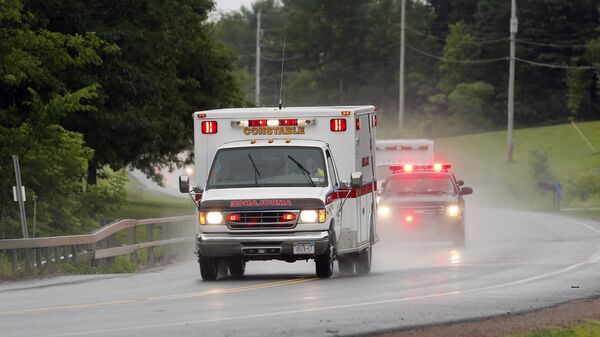According to the Pierce County Sheriff's Department, an unidentified man who runs a business delivering Dippin' Dots ice cream left four coolers of dry ice in the backseat of his car at some point before his 51-year-old wife borrowed his car on Friday to drive his mother home at about 11 p.m.
"His mom and his wife got in the vehicle to give his mother a ride home. Somehow or another, the fumes escaped from the coolers," Pierce County Sheriff Department detective Ed Troyer told KOMO Tuesday.
When the man woke up the next morning at 4 a.m. for work, he realized that his wife, whose name has also not been released, had never come home the previous night. He found the car, with the two unconscious women, parked a few blocks from his house.
He smashed the car's window with a rock, dragging his wife and mother out of the vehicle, and called 911. The women were quickly rushed to St. Joseph Medical Center. The man's wife was in critical condition Friday, but the man's 77-year-old mother most likely died of suffocation at the scene, according to a medical examiner. The wife's current condition is unknown. It is also unclear whether his mother was still alive when the man found the car.
"At this point we're just looking at this as [a] horrific accident," Troyer told the News Tribune Friday.
"He had four coolers full of dry ice because he delivered Dippin' Dots to various locations," Troyer added. "He recently got a new car. The newer car probably had better sealing and less ventilation. It was a combination of things that went terribly wrong."
"This all happened due to a lot of circumstances lining up. Dry ice by itself isn't going to kill anybody," Troyer noted.
According to University of Washington's Department of Environmental Health and Safety, dry ice, which is the solid form of carbon dioxide and is commonly used as a cooling agent, turns into its gaseous form in open air.
"Dry ice will sublime (change from solid to gas) at any temperature above —109 °F. This releases potentially substantial volumes of carbon dioxide, which can displace oxygen quickly in the air around the dry ice, causing difficulty breathing, loss of consciousness and death. This is especially of concern in nonventilated or confined spaces," according to a report from the University of Washington.



